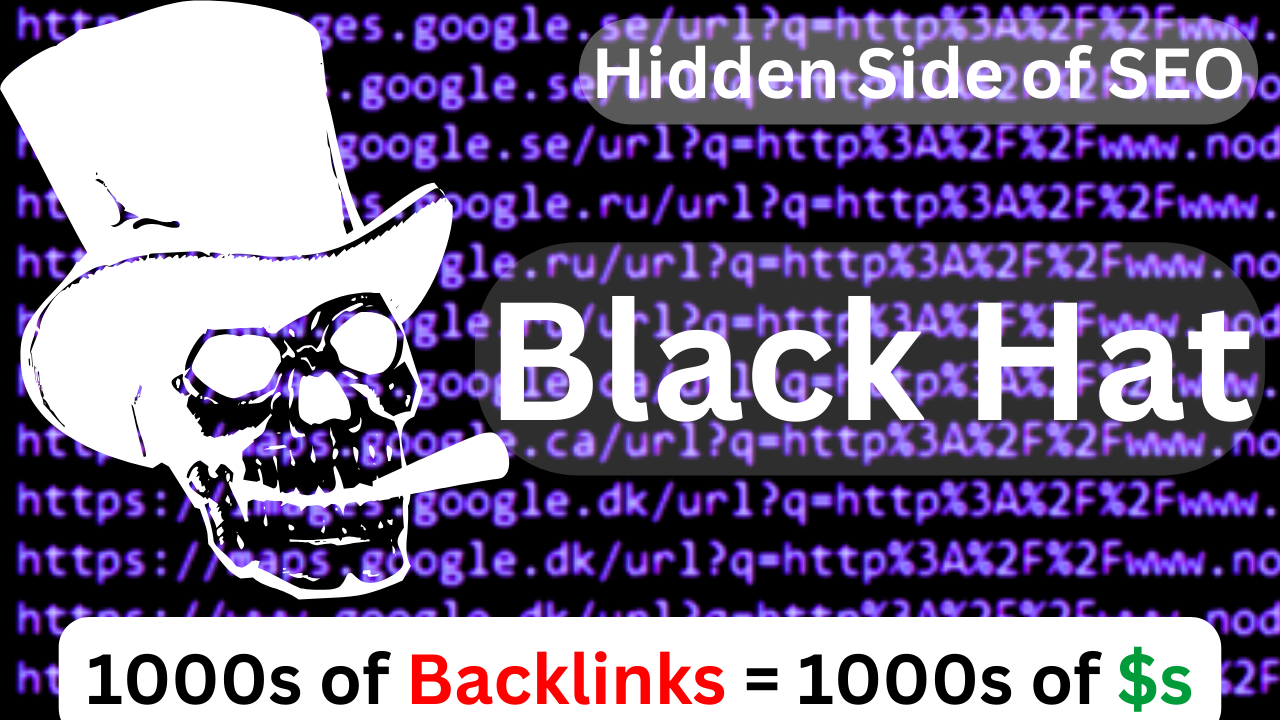In the competitive arena of digital marketing, the quest for backlinks reigns supreme. Backlinks serve as the backbone of search engine optimization (SEO), playing a pivotal role in determining a website’s authority and visibility.
However, not all methods of acquiring backlinks adhere to ethical standards or search engine guidelines. Enter the enigmatic world of Black Hat Backlinking – a realm shrouded in controversy, promising quick results but laden with risks and ethical dilemmas.
Understanding Black Hat Backlinking
Definition and Overview
Black Hat Backlinking refers to the use of manipulative and unethical tactics to artificially inflate a website’s link profile. These tactics often involve exploiting vulnerabilities in search engine algorithms or circumventing their guidelines to obtain backlinks from dubious sources.
Common Techniques
- Link Farming: Acquiring backlinks in bulk from low-quality or irrelevant websites.
- Paid Links: Purchasing backlinks from websites or networks solely for the purpose of manipulating search engine rankings.
- Private Blog Networks (PBNs): Creating a network of interlinked websites solely to manipulate search engine rankings.
- Spamming: Inserting backlinks into forums, comment sections, or guest posts without regard for relevance or context.
The Risks of Black Hat Backlinking
Search Engine Penalties
Search engines, particularly Google, employ sophisticated algorithms to detect and penalize websites engaged in manipulative link-building practices. Penalties can range from a drop in rankings to outright removal from search results, severely impacting a website’s visibility and credibility.
Damage to Reputation
Engaging in Black Hat Backlinking can tarnish a website’s reputation and credibility. Users may perceive the website as untrustworthy or spammy, leading to decreased traffic and conversions.
Ethical Considerations
Deception and Misrepresentation
Black Hat Backlinking involves deceiving both users and search engines by artificially inflating a website’s link profile. This undermines the integrity of the digital ecosystem and compromises the credibility of online content.
Violating Search Engine Guidelines
Black Hat tactics directly violate search engine guidelines, which prioritize quality, relevance, and authenticity in backlink acquisition. By disregarding these guidelines, website owners’ risk severe penalties and long-term damage to their online presence.
Alternatives to Black Hat Backlinking
Embracing White Hat Principles
White Hat SEO emphasizes ethical and sustainable strategies for acquiring backlinks. This includes creating high-quality content, fostering genuine relationships with other websites, and earning backlinks organically through merit and relevance.
Long-Term Benefits
While White Hat SEO may require more time and effort upfront, it offers long-term benefits in terms of sustainable rankings, credibility, and trustworthiness. By adhering to ethical practices, website owners can build a robust online presence built on integrity and authenticity.
Conclusion
In the ever-evolving landscape of SEO, Black Hat Backlinking remains a contentious topic, offering tempting shortcuts but carrying significant risks and ethical implications.
By understanding the tactics, risks, and ethical considerations associated with Black Hat Backlinking, website owners can make informed decisions about their SEO strategies.
Ultimately, embracing White Hat principles and focusing on quality, relevance, and authenticity is the key to long-term success in the digital age.

